This section features a detailed cross-reference designed to enrich your understanding of the Scriptures.
Below, you will find carefully selected verses that echo the themes and teachings related to John 9:3 KJV. Click on any image to explore detailed analyses of related Bible verses and uncover deeper theological insights.
 John 11:4 (KJV) »
John 11:4 (KJV) »
When Jesus heard that, he said, This sickness is not unto death, but for the glory of God, that the Son of God might be glorified thereby.
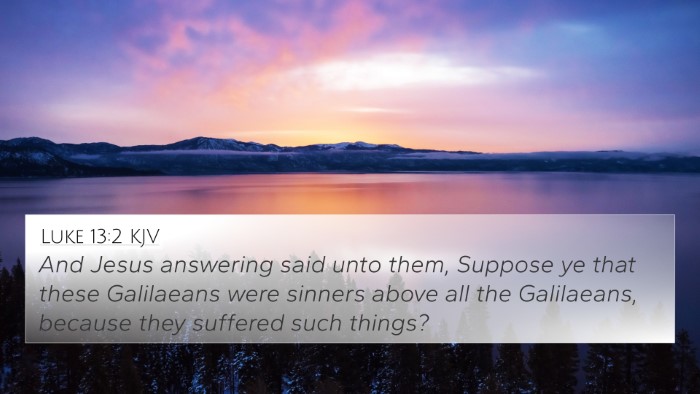 Luke 13:2 (KJV) »
Luke 13:2 (KJV) »
And Jesus answering said unto them, Suppose ye that these Galilaeans were sinners above all the Galilaeans, because they suffered such things?
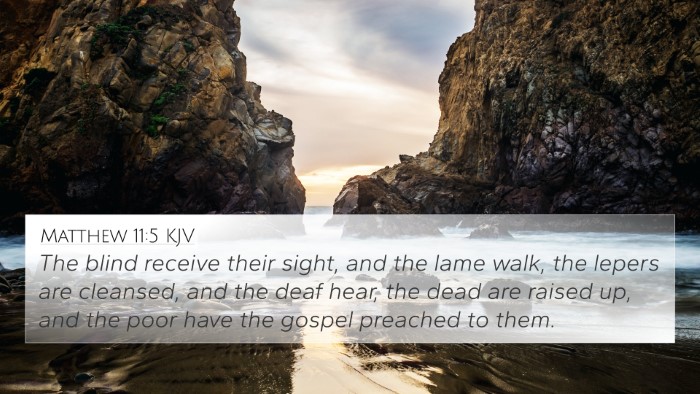 Matthew 11:5 (KJV) »
Matthew 11:5 (KJV) »
The blind receive their sight, and the lame walk, the lepers are cleansed, and the deaf hear, the dead are raised up, and the poor have the gospel preached to them.
 Job 42:7 (KJV) »
Job 42:7 (KJV) »
And it was so, that after the LORD had spoken these words unto Job, the LORD said to Eliphaz the Temanite, My wrath is kindled against thee, and against thy two friends: for ye have not spoken of me the thing that is right, as my servant Job hath.
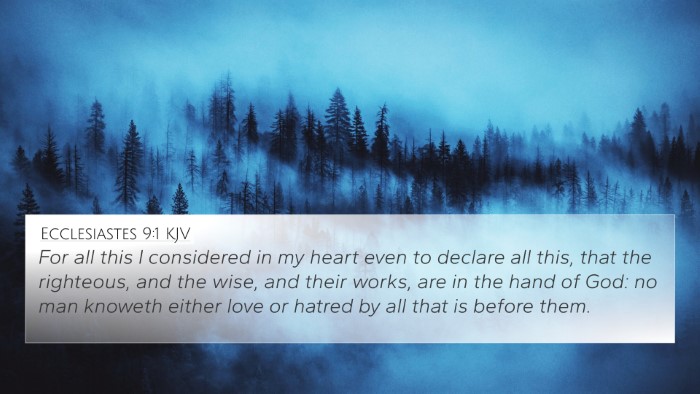 Ecclesiastes 9:1 (KJV) »
Ecclesiastes 9:1 (KJV) »
For all this I considered in my heart even to declare all this, that the righteous, and the wise, and their works, are in the hand of God: no man knoweth either love or hatred by all that is before them.
 John 14:11 (KJV) »
John 14:11 (KJV) »
Believe me that I am in the Father, and the Father in me: or else believe me for the very works' sake.
 John 11:40 (KJV) »
John 11:40 (KJV) »
Jesus saith unto her, Said I not unto thee, that, if thou wouldest believe, thou shouldest see the glory of God?
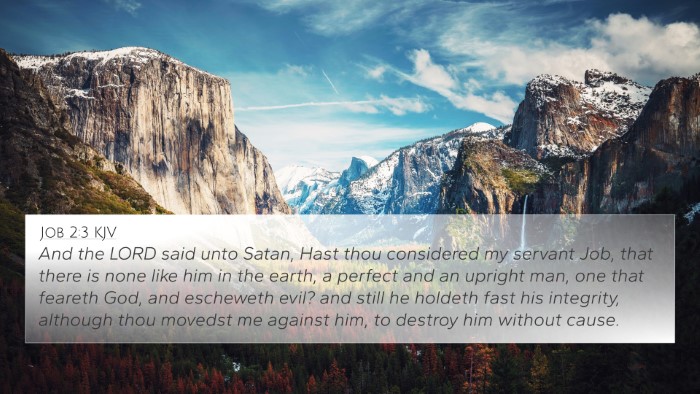 Job 2:3 (KJV) »
Job 2:3 (KJV) »
And the LORD said unto Satan, Hast thou considered my servant Job, that there is none like him in the earth, a perfect and an upright man, one that feareth God, and escheweth evil? and still he holdeth fast his integrity, although thou movedst me against him, to destroy him without cause.
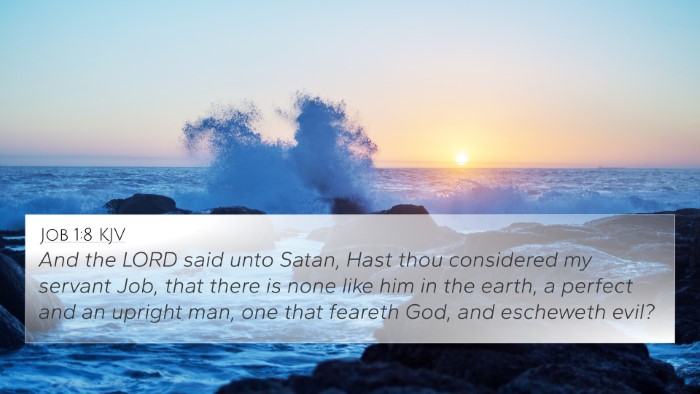 Job 1:8 (KJV) »
Job 1:8 (KJV) »
And the LORD said unto Satan, Hast thou considered my servant Job, that there is none like him in the earth, a perfect and an upright man, one that feareth God, and escheweth evil?
 Job 21:27 (KJV) »
Job 21:27 (KJV) »
Behold, I know your thoughts, and the devices which ye wrongfully imagine against me.
 Acts 4:21 (KJV) »
Acts 4:21 (KJV) »
So when they had further threatened them, they let them go, finding nothing how they might punish them, because of the people: for all men glorified God for that which was done.
 Job 32:3 (KJV) »
Job 32:3 (KJV) »
Also against his three friends was his wrath kindled, because they had found no answer, and yet had condemned Job.
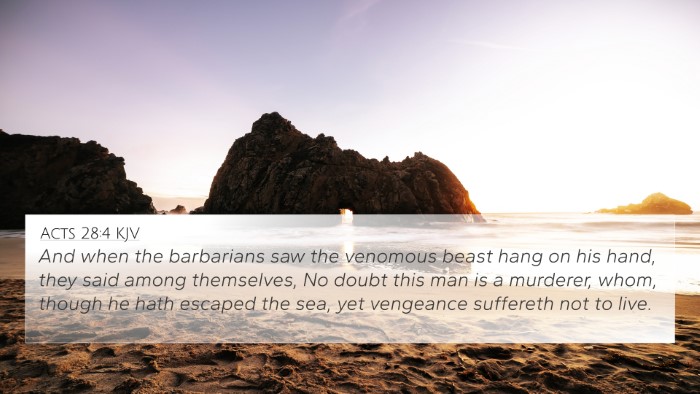 Acts 28:4 (KJV) »
Acts 28:4 (KJV) »
And when the barbarians saw the venomous beast hang on his hand, they said among themselves, No doubt this man is a murderer, whom, though he hath escaped the sea, yet vengeance suffereth not to live.
















